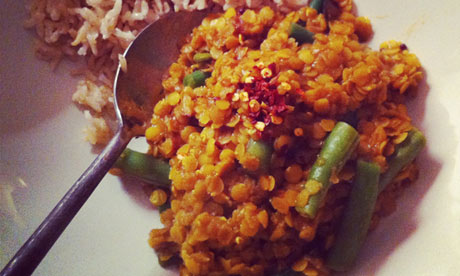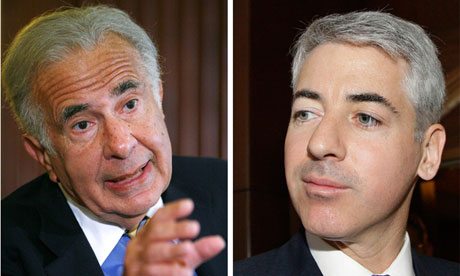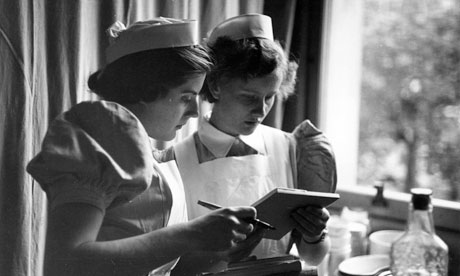The 5:2 diet – feasts for fast days
With its flexible approach and simple rules, the 5:2 diet has become the calorie-control plan for people who like to eat

The fasting diet, otherwise known as the 5:2, restricts calories for two days a week. Photograph: Felicity Cloake
For the first time since university I am on a diet. Somehow, I've become a calorie-counter, someone who weighs out porridge oats and drinks herbal tea. In other words, the kind of person I've always pitied.
The thing is, I'm actually quite enjoying it – enjoying being a relative term, of course. In an ideal world, I'd boast the kind of robust metabolism that laughs in the face of cooking six bakewell tarts an afternoon, but I don't. And since I started my Perfect recipe column a couple of years ago, I've noticed the pounds slowly creeping on. There's a lot to love about my job, but it does make it almost impossible to eat healthily.
The fasting diet, otherwise known as the 5:2 because of the format – five days of normal eating a week and two in which you restrict your calories (500kcal for women, 600kcal for men) – seemed to offer a glimmer of hope for my hips. It's basically the diet for people who like food. Everyone from Hugh Fearnley-Whittingstallto wine writer Fiona Beckett has been boring on about fast days, and if they could do it, well, so could I.
So far, I've managed two months. As someone who's never made a habit of weighing themselves, I can only tell you that I think I've lost about 10lb since I started, which includes a two-week period over Easter where I gave myself a bit of a break, but only put back on 1lb.
The odd thing was, after Easter I was impatient to get going again. The 5:2 already feels like a long-term project. It's not difficult to stick to either. After all, if you really want a biscuit, you can always have one tomorrow – a thought I find extremely cheering.
Many people I've spoken to seem to avoid cooking at all on a fast day, reasoning perhaps that it simply puts temptation in their way. Indeed, in her book, the Fast Diet, co-authored with Dr Michael Mosley, whose 2012 BBC Horizon programme on fasting kickstarted interest in the idea, Mimi Spencer advises preparing food in advance, and keeping it simple, "aiming for fast-day flavour without effort".
I couldn't disagree more. For me, the challenge of devising satisfying recipes that fit within the daily 500-kcal limit has kept fast days interesting, and frankly, if you're only going to be eating two small meals a day, heating them up in the microwave makes things even more depressing. Here are a few tips I've found useful so far, and three of my favourite fast-day recipes …
• Low-calorie cooking is all about strong flavours: pungent spices, zesty lemon juice and salty soy sauce will all help to distract your attention from the missing calories, as will lots of garlic and big handfuls of fresh herbs.
• Don't be too hard on yourself. Usually I sniffily avoid artificial sweeteners, but a cold glass of slimline tonic with a slice of lime and plenty of ice goes down a treat when everyone else is glugging wine. I've even been known to indulge in a low-calorie pot of jelly when I'm feeling particularly wild.
• Carbs are rarely worth the calories. A paltry 50g of brown rice takes up over a third of your daily calorie count. Save them for tomorrow and fill up on vegetables and berries instead.
• Pickles such as gherkins (14kcal per 100g) and miso soups (20-30kcal a cup) are your friends for snacks.
• Drink lots. Sparkling water, evil diet drinks and weird and wonderful teas will keep you occupied mid-afternoon.
• Embrace your inner nerd and invest in a set of electronic scales and a calorie-counting book or app, or you'll find it impossible to measure your intake accurately.







